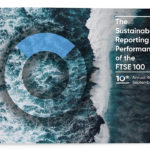Echo Research, global specialists in reputation audit and analysis, today reveals the findings of its third international corporate social responsibility (CSR) report – ‘CSR and The Financial Community – Friends or Foes?’ Via a mix of face-to-face interviews with financial community leaders in UK, US, Australia, France, Germany and South Africa, plus an analysis of over 5,000 CSR-related media mentions, Echo reveals the trends and ways forward for greater CSR adoption and validation, and posts its influential CSR ‘saints and sinners’ listing.
Echo’s research highlights that interest in CSR is intensifying in the way the international financial community views and values traded companies. Echo’s work shows that the UK is seen as leading in the debate despite significant cynicism, and that South Africa has the most forward-thinking financial community and companies. This is reflected in the most positive perceptions of CSR, not least stimulated by the influential King Report which gives South African companies a road map to good CSR.
William Oulton, Strategic Advisor for SRI to FTSE Group, the global index provider, and one of those interviewed for the report said: "Logically it has got to be the case that there is a link between CSR and business performance. The development of financial tools by companies providing different types of research on social and environments risks is a major driver for the greater adoption and appreciation of CSR within the financial community, along with the development of social responsibility indices like FTSE4Good."
Others questioned noted that " big funds and institutional shareholders are beginning to look at non-financial issues " but say this is a long-term educational process and that the direct causal link between good CSR and good financial returns is sensed in terms of enhanced brand values, employee morale and reduced recruitment costs, but not routinely quantified.
Ken Rushton, Director of Listing at the Financial Services Authority, speaking at the Echo CSR conference said: "The jury may still be out in detecting direct relationships between good CSR practice and good shareholder returns, but there is little doubt that investors looking at the long-term performance of companies are taking CSR into account, alongside ethics and corporate governance, as part and parcel of sound evidence of reputation risk management."
Regulatory Resistance
Most financial executives interviewed by Echo had a strong resistance to the need for CSR regulation, noting that, ironically, a set standard would act as a minimum level of attainment, and that "
there are enough external drivers in place such as shareholder activism and other market forces which are driving CSR in the right direction." As one respondent dryly observed "
I don’t believe you can regulate ethics – you either have them or you don’t."
Echo’s report notes that most of those interviewed agreed that " a code of ethics indicates a well-managed company ", and that " not having an ethical code is a negative for institutional investors." While many observed that "CSR is no protection from failure", there is broad recognition that good CSR equates with better risk management.
Sandra Macleod, Chief Executive of Echo Research, said: "This is our third in-depth, qualitative report on the perception of CSR, based now on over 250 interviews around the world. We have seen a distinct shift from CSR as an inspirational concept three years ago towards accepted good management practice today. The next big step for CSR is full integration throughout organisations rather than kept at a distance in a discrete ‘CSR worry box’ – and greater quantification of its value. As this occurs, the international financial community will give CSR greater credence when evaluating the quality of management, the company’s strategy and how its shares should be rated."
CSR Centre Stage In Companies’ Brand Projection
Echo’s media evaluation of 5,342 articles found that most is written about CSR in the financial services, consumer goods/retailing and petrochemical industries. The research also shows a significant shift from CSR being covered simply as a good-to-do, philanthropic issue to being centre stage in terms of the impact it can have on a company’s whole brand image and reputation.
The Echo findings highlight that while there is a mixed picture as to how the financial community views CSR’s direct impact on share price, there is little doubt that shareholder satisfaction is increased by positive, pro-active CSR. Also, a strong increase in employee motivation can have real value, especially in those sectors where the war-for-talent is hardest fought, such as the extractive industries, tobacco and pharmaceutical firms.
CSR’s Way Forward
Finally, Echo’s Macleod noted that between now and next year’s fourth CSR report, she expects more companies to improve the quality of their CSR reporting as a major way of enhancing its importance within a still largely sceptical financial community. "The way forward is to integrate CSR across the business and let the spirit of your company’s corporate culture shine through. Identify key CSR issues and be open and transparent about them – warts-and-all – and then consistently seek third-party authentication of your CSR report to give it credibility and best-practice meaning which even the most cynical financial executive cannot ignore!"
Methodology
Between January 2000 and July 2003, 240 opinion formers from the UK, US, Australia, China, France, Germany and South Africa have been interviewed. For this third report, specifically 40 financial community executives were asked 44 questions relating to their investment decisions. Financial institutions interviewed included FTSE (UK), Core Ratings (UK), Confederation of British Industry (UK), Britannic Asset Management (UK), Capital Investment (Germany), Allianz Asset Management (Germany), Deutsche Securities (South Africa), Association of Superannuation Funds of Australia, Australian Investment Managers Association, Cazenove (South Africa), HSBC (South Africa), Deloitte & Touche (South Africa). The 5,432 evaluated press mentions cover the main national, international and business press in the same seven international markets between January 2000 and July 2003.



